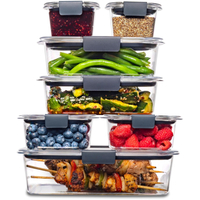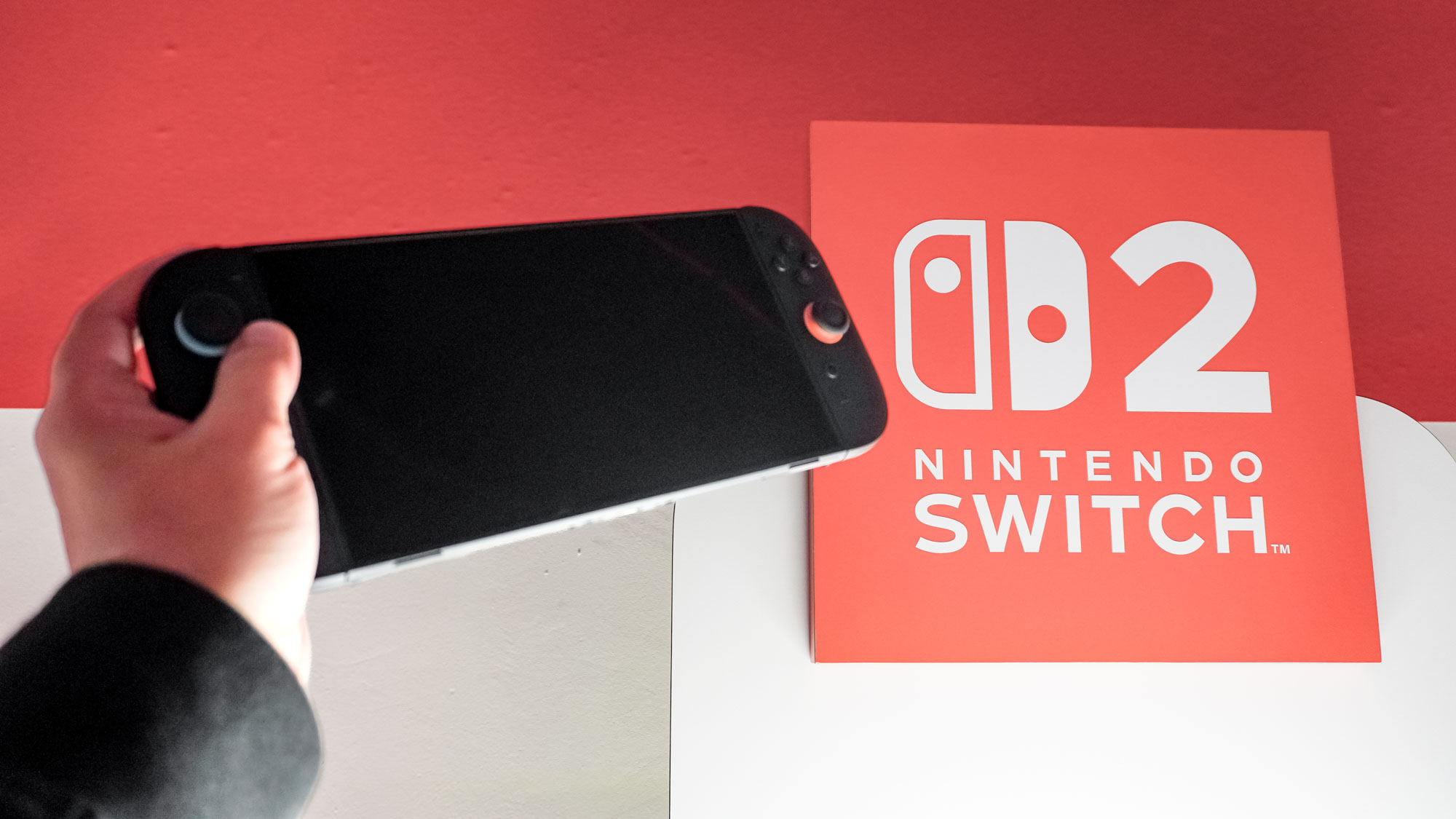5 things you should declutter in spring, according to professional home organizers
Decluttering your home makes for easier spring cleaning

You might dream of living in a clean and organized home—but then reality (and kids, pets, and messy partners) get in the way.
efore you know it, your home is filled with years’ worth of stuff you barely remember buying, let alone using. And the thought of tackling the piles of stuff is overwhelming—when are you meant to declutter your entire home when your schedule is already full?
Rather than deciding to embrace the clutter and live the hoarder life, take your home organization project one small step at a time. We spoke with three professional home organizers to get their thoughts on the top items to throw out. In addition to giving their advice, they explained why decluttering is so essential.
“Decluttering your home is the first step to physical, financial, and mental freedom,” explain Briana and Erica Spruille, professional organizers, sisters, and founders of Just BE LLC. “A tidy, clear space leads to a clear mind and less stress.”
Courtney Cummings, founder of The Stylish Organizer, agrees. “While there are necessities for us to live comfortably in our homes, you probably have a fair share of things that are just taking up space,” she says. “When we are surrounded by clutter, we tend to feel more anxious, have trouble focusing, and even have difficulty sleeping and staying asleep.”
According to these organization experts, here are 5 things you should throw away this spring for a fresh start and a lower stress level.
1. Clothing that doesn’t fit

If you’re still holding on to your favorite pair of jeans from high school that no longer fit, now is the perfect time to say goodbye. “While we would love to believe we can wear the clothing that we had in high school, for many of us that is not the case,” says Cummings. “Be realistic about what you wear and what makes you feel good. If it doesn’t fit, is beyond repair, or simply doesn’t make you feel your best, get rid of it.”
Sign up to get the BEST of Tom's Guide direct to your inbox.
Get instant access to breaking news, the hottest reviews, great deals and helpful tips.
Briana and Erica Spruille agree. “Clothes that do not fit, are soiled, or have needed repair for a while” are taking up precious space in your closet and need to be thrown out, they say.
“There are plenty of organizations and charities that accept gently used clothing for their clients”
Not sure what to do with old clothes? “There are plenty of organizations and charities that accept gently used clothing for their clients,” says Cummings. “Give back to your community and free yourself.”
You have several options if your clothes are severely stained or ripped and are beyond repair. You can use them as cleaning rags, donate them to an animal shelter for use as bedding, or find an organization that recycles old clothing. Try to avoid throwing old clothes in the trash; depending on the material, they could take a few months to dozens (or hundreds) of years to decompose.
2. Old paperwork
You never know when you might need that medical bill from 2012—but, in all likelihood, the answer is never, especially when modern bills are available online. Old paperwork and piles of papers can quickly take over your house, but they don’t have to. The Spruille sisters suggest getting rid of, “Old paperwork, [including] school art, manuals, textbooks, [and] bills” to declutter your home this spring.
Piles of unopened mail are another common problem. “Go through your mail each day and recycle what you don’t need,” Cummings suggests. This helps prevent it from piling up and overwhelming you. “Sort through your kids’ school papers and only keep what is important for the moment,” she recommends. “File your receipts away for tax purposes, as needed.”
“Go through your mail each day and recycle what you don’t need”
If you have a filing cabinet, sort through it and discard anything you no longer need. Shred anything that contains personally identifiable information and recycle everything else.
And, if you’re recycling a pile of children’s art, do it subtly. Children can, and will, notice their precious drawing in the recycling bin and demand to know who disposed of it so cruelly.
3. Expired food and spices
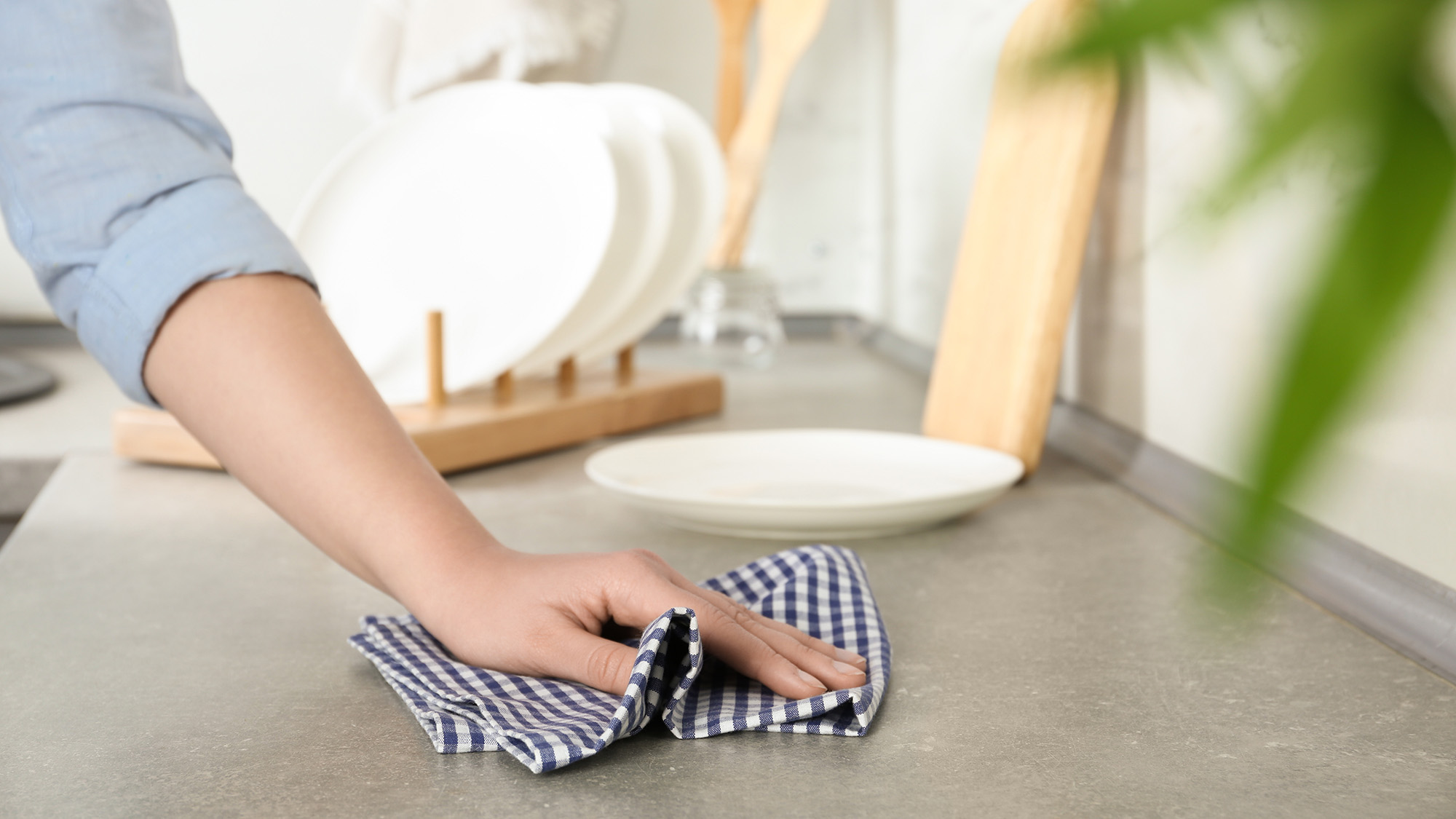
When did you last check the expiration dates on the food in your pantry? If the answer is “never,” you likely have some items taking up space that expired long ago.
“It’s easy to accumulate pantry staples over time,” says Cummings. “However, I recommend you quickly scan your pantry for expired food and spices once a quarter. Not only will this free up precious space on your shelves, but it will also ensure that your family is eating meals made with the freshest ingredients.”
And while you’re checking expiration dates, look for non-expired items that you probably won’t use and donate them to a local food bank or pantry. Perhaps you went through a black bean or canned ravioli phase a few months ago but got sick of eating them. Local organizations that feed the hungry would be very thankful for these unexpired nonperishable food items.
Once you’ve decluttered your pantry, consider how you want to organize it moving forward—and ensure you can monitor expiration dates. “If you like to decant flour, sugar, cereal, or snacks into clear containers, use a label or a sticky note to write the expiration date and place it on the bottom of the container,” advises Cummings. “It’ll save you heartache later.”
4. Broken and unused kitchen items
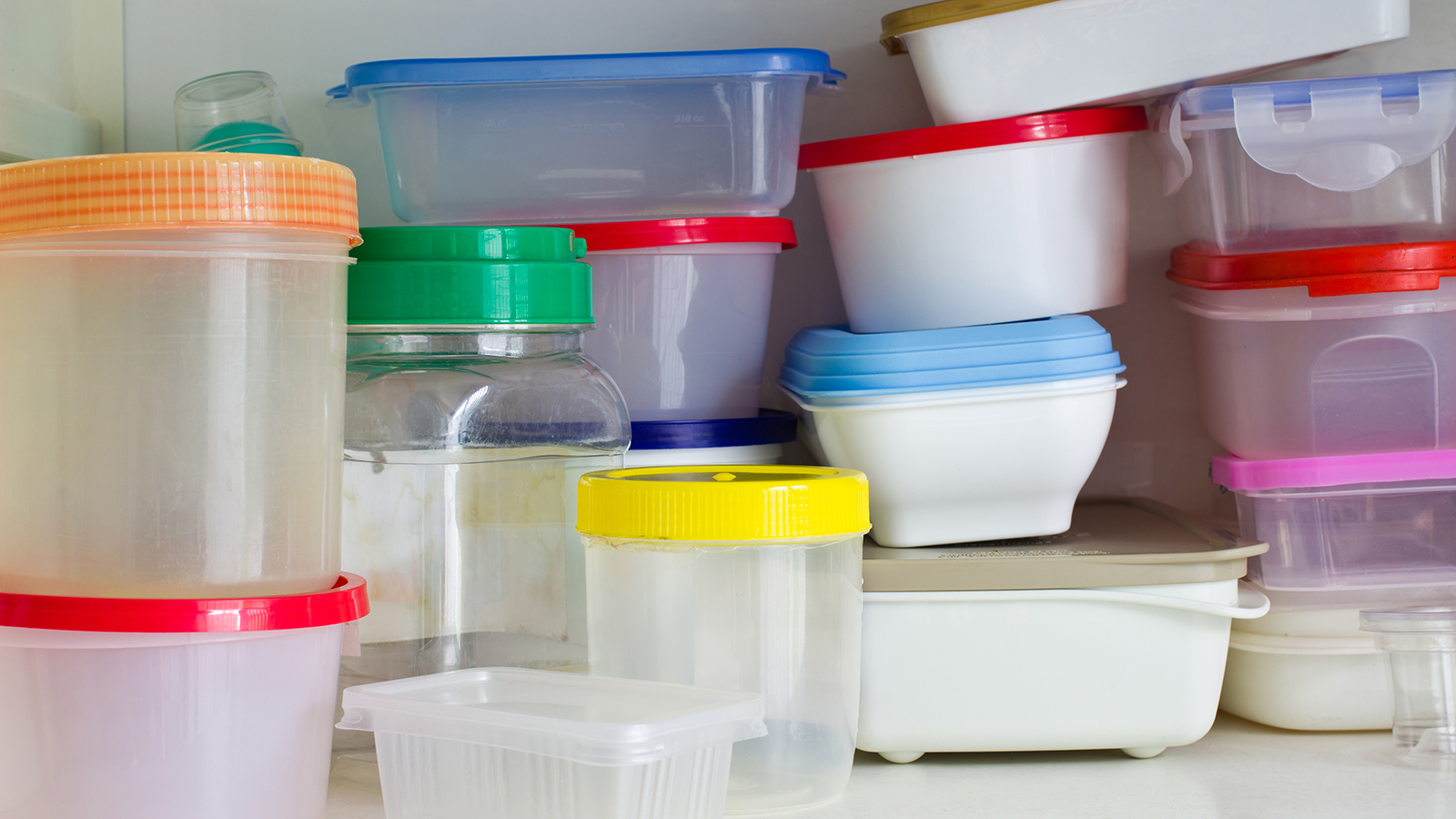
Your kitchen drawers and cabinets can hide many secrets. Perhaps you chipped a favorite mug and squirreled it away to fix at a later date, but that time never came. Or maybe you caved and bought that must-have gadget off social media before realizing you’ll never really use it. These items in your kitchen are due for a declutter.
“[Toss] tarnished, chipped, or broken plates, mugs, or serving ware,” recommend the Spruille sisters. These items are taking up valuable real estate in your kitchen cabinets that could house the items you use daily. Take this time to replace chipped plates or cups to prevent accidental injuries during dinner.
“If you can’t remember the last time you used these items, round them up and get them out of the house”
And, while you’re at it, Cummings recommends considering whether you need all those random kitchen gadgets you’ve picked up over the years. “Very specific gadgets like these take up precious space in your kitchen,” she says. “If you can’t remember the last time you used these items, round them up and get them out of the house.”
Tackling these items will help declutter your kitchen so it’s more usable. “Ultimately, the goal is to have things that you love, need, and use, without unnecessary duplicates,” Cummings says.
Time to refresh your containers? This set from Rubbermaid is BPA-free and comes with 7 containers in assorted sizes with secure clip-safe lids. Ideal for meal prepping.
5. Old chargers and electronics
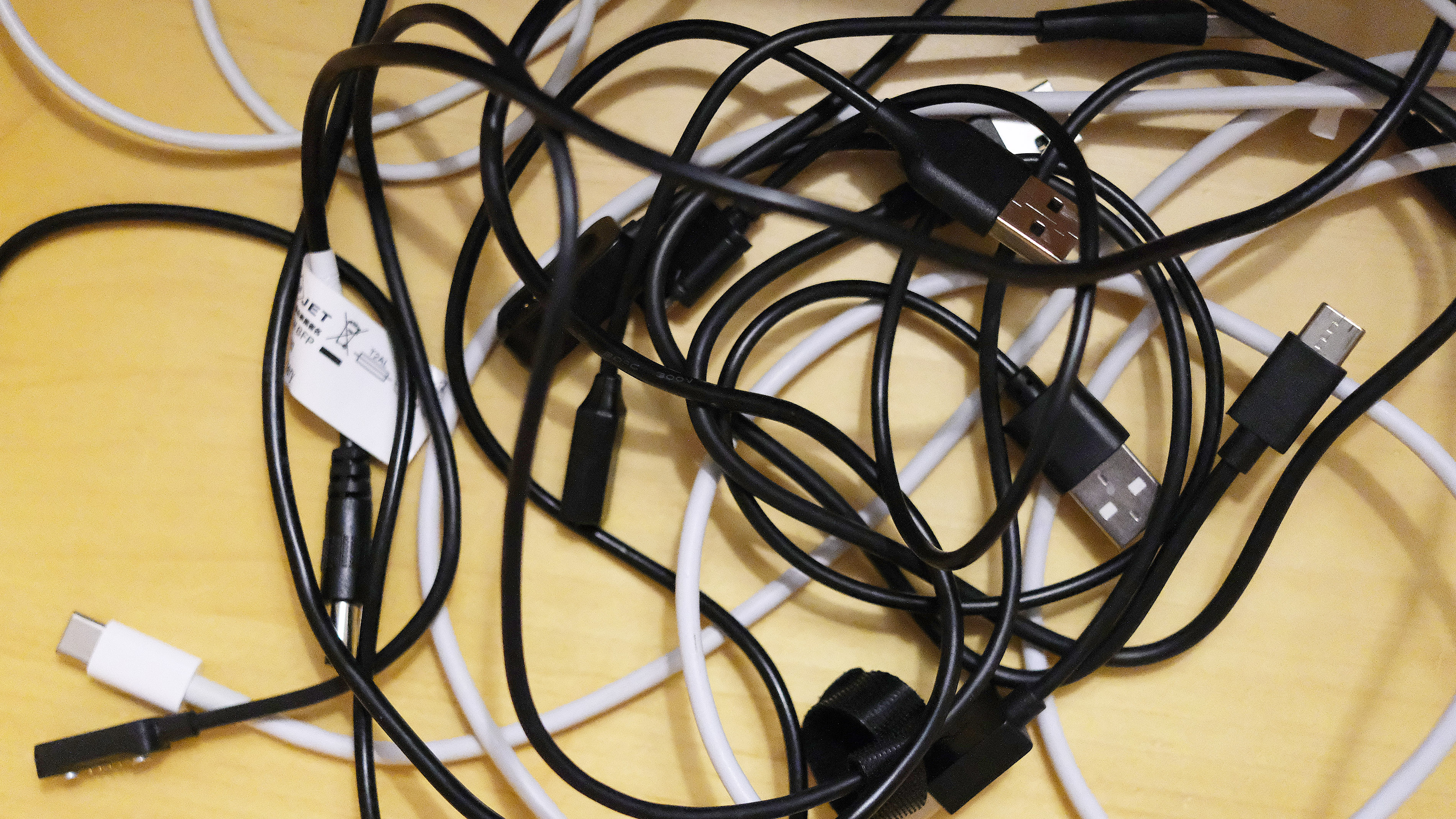
Do you still have the charger for your early 2000s flip phone? (Or even the phone itself?) Chargers and cables don’t take up much room, so keeping them “just in case” is tempting—and those flip phones were so tiny. But if you gathered all these cables and old electronics in one place, you’d be surprised how much space they occupy in your home.
“If you don’t know what it charges, chances are you don’t need it,” says Cummings. “Technology is ever evolving, as are the cords and cables that power these devices.” And what are the odds you will ever use that brick-like laptop from college again? Remember that electronics can’t just be tossed in the trash, so you’ll need to research how to dispose of them responsibly. Don’t forget to wipe your data first!
“If you have a pile of old electronics to dispose of and don’t know what to do, check your local government office for e-waste recycling programs,” Cummings recommends. “Some electronics stores will also recycle old devices or even buy them from you if they are in working order.”
Expert tips on how to declutter

Not sure where to start? Our experts shared tips to help you declutter your home quickly and efficiently. Here are their recommendations.
- Remove emotions from the process: “Adjust your mindset,” recommend the Spruille sisters. “Do not think about the money that was spent on the item; instead, think about the time and energy it takes to manage stuff that you do not want or use.”
- Take it one room at a time: “Walk into a room and survey the area,” Cummings advises. “What doesn’t belong here? Grab those items and take them back to their rightful rooms. This should take about 5 minutes.”
- Make keep, donate, and toss piles: “For each belonging, ask yourself three questions,” recommends Cummings. “Do I love it? Do I need it? Do I use it? To keep an item, you should be answering ‘yes’ to at least two of these three questions.”
- Toss the trash: “Grab a bag and toss obvious trash,” advise the Spruilles. “It’s just that simple: if it is broken, soiled, missing a piece, or you just do not want it…it is trash.”
- Make an ongoing decluttering plan: “Make it a monthly habit,” advise the Spruille sisters. “Decluttering is not one and done; it has to be a regular habit if you are going to continue buying things.”
- Dispose of items responsibly: “Contact your local waste management company to determine what they will and will not accept,” recommends Cummings. “Many times, the local government controls what is acceptable to place in landfills and what needs special disposal.”
More from Tom's Guide

Catherine Hiles has over a decade of experience writing and editing on various topics, including home improvement, personal finance, home finances, pet ownership, and parenting. Her work has been featured on BobVila.com, TIME Stamped, The Penny Hoarder, and more. In her spare time, Catherine enjoys running, reading, spending time with her kids and dogs, and tackling projects around the house.
You must confirm your public display name before commenting
Please logout and then login again, you will then be prompted to enter your display name.
